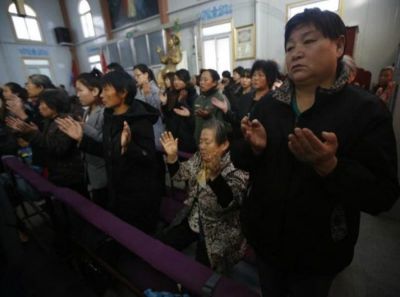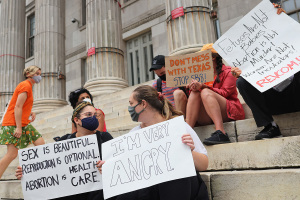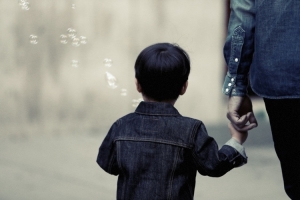China’s latest crackdown on underground churches is proving perilous

Religious freedom in China has been in a downward spiral since Chinese President Xi Jinping took office in 2012. Due to the all-encompassing controls exerted by Beijing, religions deemed as “foreign,” including Christianity, Islam, and Tibetan Buddhism, face high levels of persecution. Chinese citizens who practice their faith find themselves increasingly surveilled, unable to fully exercise their rights and fearing for their lives.
House churches, also commonly referred to as “underground churches,” are Protestant churches in China that exist outside of the government-sanctioned “Three-Self Patriotic Movement (TSPM).” Although house churches are not politically recognized and often risk being shut down, they have enjoyed a limited degree of freedom to operate since the 1980s. But in recent days, the current president’s regime has begun limiting many of these previously enjoyed freedoms.
Unregistered house churches in China have become government targets. Raids on Sunday services and small groups are now a common occurrence. Online worship or prayer meetings are disrupted by police. Hotels dare not lease space to churches for fear of the government’s reprisal. This latest government crackdown is proving perilous to Chinese believers there.
Since the beginning of Xi’s Sinicization campaign in 2015 to make churches more Chinese in character, religions in the country have had to conform to the Chinese Communist Party’s (CCP) ideology and surrender more autonomy to the government. Removal of religious displays and symbols, flag-raising ceremonies, “red tunes” (songs about CCP) competitions, and patriotic education for preachers and clergy have been imposed. Some churches in Jiangxi province have even been forced to replace portraits of Jesus with Xi Jinping’s photo. Failing to conform can affect their social benefits.
The level of surveillance imposed on churches increased during the pandemic, as the Chinese government used COVID-19 as an excuse to prevent, limit and monitor religious activities. In Zhejiang province, for instance, while malls and restaurants could operate, churches had to stop gathering. Local authorities throughout China also demanded churches install CCTVs with facial recognition technology so they could spy on their attendance, sermon, and leaders.
Leaders of house churches, especially those not afraid to speak out against the government crackdowns, find themselves targets of arbitrary arrest or trumped-up charges. In March 2021, Elder Zhang Chunlei from Guiyang was arrested on suspicion of fraud — and is still in prison. In July of the same year, Zhao Weikai from Shanxi province was criminally detained with the charge of “illegal holding of materials promoting terrorism and extremism.” Wang Shunping — a Christian of the Nu people in Yunnan province — was arrested in September 2022 for “organizing and sponsoring illegal gatherings.” Last September, Hunan street preacher Chen Wensheng was detained on suspicion of “organizing and financing illegal gatherings.” These reported cases represent just a fraction of Christians who have been incarcerated for practicing their faith. With tightened control of internet space in China, it is difficult to tally an exact count.
A pastor who leads a house church located in the coastal area of southeast China, shared his church’s experience of government crackdowns against unregistered churches with Global Christian Relief recently. He said his congregation first received warnings in 2014 after participating in a resistance movement against a campaign to remove a cross. Four years later, local authorities claimed that his church failed a fire inspection and had electrical issues. They also demanded that his church join the TSPM state church. He refused, leading to more harassment and threats.
In October 2020, the church had its electricity cut twice and was forced to relocate. Their landlord was unable to resist pressure from the government and unilaterally ended the rental contract in January 2021. The congregation worshipped for months in a hotel meeting room, but restrictions there also became increasingly difficult. Police raided their services and forced hotels to stop renting to them. The church received a fine notice to deter them from gathering.
To avoid being raided, the church divided itself into smaller groups of 10. They gathered at different locations to keep a lower profile. Yet, they were still heavily surveilled. In the eyes of the government, religious gatherings can be detrimental to social stability and must be tightly controlled.
Although the churches in China today seem to be hard-pressed on every side, a U.S. based pastor and advocate who once led a Chinese house church, shared with Global Christian Relief an encouraging statement about the future. “Satan is relentlessly trying to destroy God’s people, but God’s plan will triumph,” he said.
We must pray for the churches in China like never before so that they can continue to persevere in their worship — even if the Chinese government refuses its campaign of intimidation, harassment and persecution.
CJ Wu is a writer for Global Christian Relief (GCR), America’s leading watchdog organization focused on the plight of persecuted Christians worldwide. In addition to equipping the Western church to advocate and pray for the persecuted, GCR works in the most restrictive countries to protect and encourage Christians threatened by faith-based discrimination and violence.




























